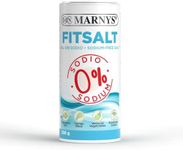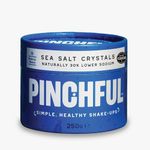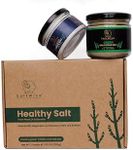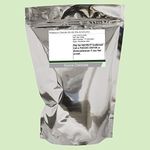Buying Guide for the Best Salt Substitutes
Choosing the right salt substitute can be a great way to reduce your sodium intake while still enjoying flavorful meals. Salt substitutes are designed to mimic the taste of salt without the high sodium content, making them a healthier option for those looking to manage their blood pressure or reduce their risk of heart disease. When selecting a salt substitute, it's important to consider several key factors to ensure you find the best fit for your taste preferences and dietary needs.Main IngredientThe main ingredient in salt substitutes is crucial because it determines the flavor and health benefits. Common ingredients include potassium chloride, magnesium sulfate, and various herbs and spices. Potassium chloride is often used because it mimics the taste of salt well and can help increase potassium intake, which is beneficial for heart health. However, it may not be suitable for people with kidney issues. Herbs and spices offer a natural alternative and can add unique flavors to your dishes. Choose a main ingredient that aligns with your health needs and taste preferences.
Flavor ProfileThe flavor profile of a salt substitute can vary widely, from salty to savory to slightly sweet. Some substitutes aim to replicate the taste of table salt closely, while others offer a blend of herbs and spices for a more complex flavor. If you prefer a taste similar to regular salt, look for products with potassium chloride. If you're open to experimenting with new flavors, consider blends that include garlic, onion, or other herbs. Your personal taste preferences should guide your choice here.
Sodium ContentOne of the primary reasons for using a salt substitute is to reduce sodium intake. Check the sodium content on the label to ensure it meets your dietary goals. Some substitutes contain no sodium at all, while others may have a small amount. If you need to strictly limit your sodium intake, opt for a product with zero sodium. If you're looking for a moderate reduction, a low-sodium option might be suitable.
Potassium ContentMany salt substitutes contain potassium, which can be beneficial for heart health and blood pressure management. However, too much potassium can be harmful, especially for individuals with kidney problems or those taking certain medications. Check the potassium content and consult with a healthcare provider if you have any health conditions that might be affected by increased potassium intake. Choose a product with a potassium level that fits your dietary needs.
Allergen InformationIf you have food allergies or sensitivities, it's important to check the allergen information on the salt substitute packaging. Some products may contain ingredients like soy, gluten, or dairy, which could trigger allergic reactions. Always read the label carefully to ensure the product is safe for you to consume. If you have specific allergies, look for products that are clearly labeled as free from those allergens.
Usage VersatilityConsider how versatile the salt substitute is for your cooking needs. Some substitutes are designed for specific uses, such as baking or seasoning, while others are more versatile and can be used in a variety of dishes. Think about the types of meals you prepare most often and choose a product that will work well with your cooking style. A versatile salt substitute can be a convenient addition to your kitchen.








